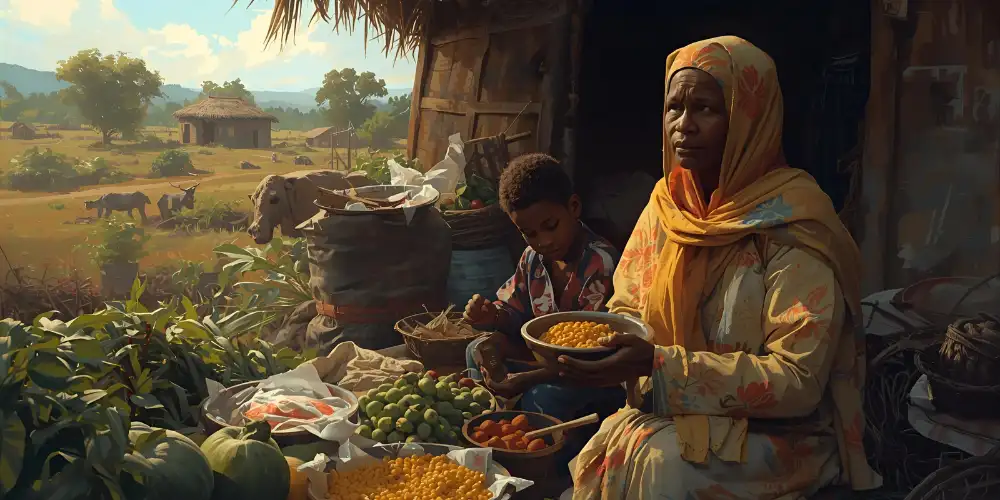Rethinking Economic Sanctions in Africa: How Food Prices Hurt the Poor
Introduction: The Unseen Consequences of Economic Sanctions
Economic sanctions are often imposed with the intent to influence political behavior or deter undesirable actions by governments. However, their unintended consequences can have profound effects on the civilian population, particularly in developing regions like Africa. One of the most significant and often overlooked impacts is the rise in food prices, which disproportionately affects the poorest communities. This article delves into the mechanisms through which economic sanctions influence food prices in Africa and examines the broader implications for food security and poverty.
Understanding the Link Between Sanctions and Food Prices
Economic sanctions typically involve measures such as trade restrictions, asset freezes, and financial barriers aimed at pressuring a nation’s government. While these sanctions target state actors, their ripple effects often extend to the civilian population. In Africa, where economies are heavily reliant on agriculture and food imports, sanctions can disrupt supply chains, increase production costs, and limit access to essential goods. These disruptions lead to higher food prices, making basic staples unaffordable for many.
Disproportionate Impact on the Poor
The poorest communities in Africa are the most vulnerable to the effects of rising food prices. With limited income and fewer resources to absorb price shocks, these populations face increased food insecurity. Studies have shown that during periods of economic sanctions, the prevalence of undernourishment can rise significantly, exacerbating existing poverty and leading to long-term health and social challenges.
Case Studies: Real-World Impacts
Several African countries have experienced the detrimental effects of economic sanctions on food prices:
- Zimbabwe: Sanctions imposed in the early 2000s led to hyperinflation and a collapse of the agricultural sector, resulting in widespread food shortages and increased poverty.
- Sudan: Economic sanctions have disrupted agricultural production and food imports, leading to soaring food prices and heightened food insecurity.
- Ethiopia: While not directly sanctioned, Ethiopia has faced indirect effects due to regional sanctions, impacting food prices and availability.
These case studies illustrate the complex interplay between sanctions and food security in Africa.
Broader Implications for Food Security
The rise in food prices due to economic sanctions has far-reaching implications beyond immediate hunger. It can lead to malnutrition, stunted growth in children, and increased mortality rates. Additionally, food insecurity can trigger social unrest, as communities protest against unaffordable living conditions. The long-term effects include diminished human capital and slowed economic development, perpetuating a cycle of poverty.
Policy Recommendations
To mitigate the adverse effects of sanctions on food prices and the poor, several policy measures can be considered:
- Targeted Sanctions: Implementing sanctions that specifically target individuals or entities responsible for undesirable actions, rather than broad measures that affect the general population.
- Humanitarian Exemptions: Ensuring that sanctions allow for the delivery of humanitarian aid, including food and medical supplies, to alleviate suffering.
- Regional Cooperation: Encouraging neighboring countries to support affected populations through trade and aid, reducing the impact of sanctions.
- Monitoring and Evaluation: Establishing mechanisms to assess the impact of sanctions on food security and making adjustments as necessary to minimize harm.
Conclusion: Rethinking the Approach to Economic Sanctions
Economic sanctions, while serving as tools for political leverage, often have unintended consequences that exacerbate poverty and food insecurity in Africa. As the evidence suggests, the rise in food prices during sanction periods disproportionately affects the poorest communities, leading to a cycle of hardship and deprivation. It is imperative for policymakers to reconsider the design and implementation of sanctions, ensuring that they do not inadvertently harm the very populations they aim to protect. A more nuanced approach, focusing on targeted measures and humanitarian considerations, can help achieve political objectives without compromising the well-being of vulnerable communities. For additional insights, you can visit World Bank Food Security for more detailed analysis.
For more news, click here.




